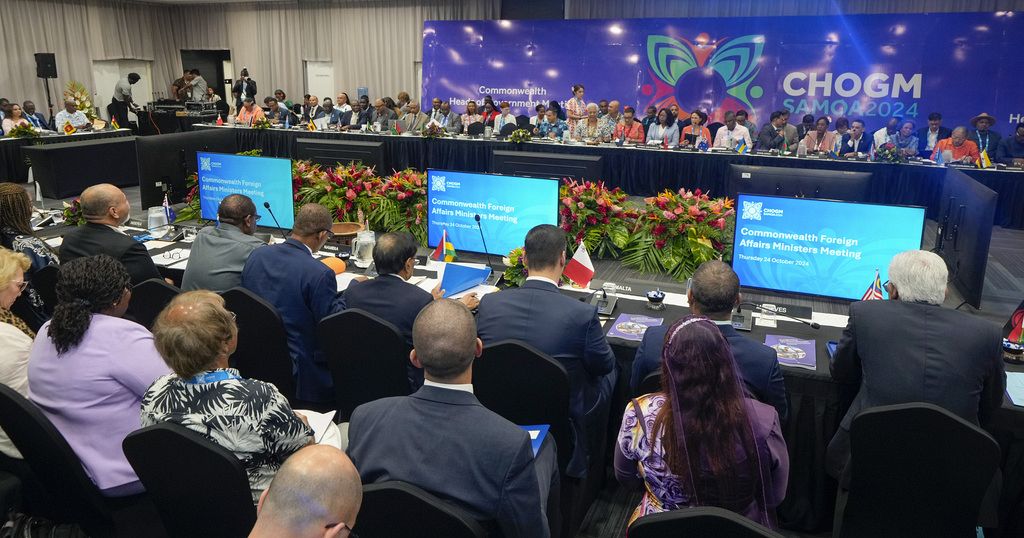
Britain is facing growing calls to open the door to reparatory justice for its role in the transatlantic slave trade.
It peaked in the 1700s and saw millions of Africans forcibly transported to British colonies in the Americas, the Caribbean, and other countries where they were sold into slavery.
Leaders of the Commonwealth group of 56 nations, most with roots in Britain’s empire, are meeting in the South Pacific nation of Samoa.
While the summit will feature talks on climate change, there are also plans to discuss reparations, despite British Prime Minister Sir Keir Starmer saying the issue was not on the agenda.
Diplomatic sources are being reported as saying that negotiations on an agreement to look into the issue are underway.
Britain has never apologised for its links to slavery and it is believed that reparations could potentially see it owing trillions of pounds.
The issue of reparations for slavery is a long-standing one, but has recently gained momentum globally.
While opponents say countries should not be held responsible for historical wrongs, those for reparations see today’s racial inequalities as a legacy of slavery.
All three candidates to become the Commonwealth’s next Secretary-General, from Ghana, Lesotho, and Gambia, have called for financial reparations.

